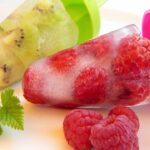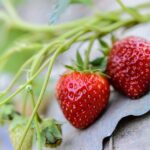As someone who has suffered from gallstones, you know how important it is to watch what you eat. Certain foods can trigger painful attacks, while others can help prevent them. Here are some tips on what to eat and avoid on a gallstone diet:
What to Eat:
1. High-fiber foods: Fiber can help regulate digestion and prevent constipation, which is important for those with gallstones. Good sources of fiber include fruits, vegetables, whole grains, and legumes.
2. Lean protein: Choose lean cuts of meat, poultry, and fish for your protein needs. Avoid fatty meats, such as beef, pork, and lamb, which can trigger gallstone attacks.
3. Low-fat dairy: Dairy products are a good source of calcium and vitamin D, but they can be high in fat. Choose low-fat or fat-free options, such as skim milk, low-fat cheese, and yogurt.
4. Healthy fats: While it’s important to limit your fat intake, not all fats are created equal. Choose healthy fats, such as those found in nuts, seeds, avocados, and olive oil.
5. Plenty of water: Staying hydrated is important for overall health, but it’s especially important for those with gallstones. Aim for at least eight glasses of water a day.
What to Avoid:
1. Fatty foods: This includes fried foods, fast food, and processed foods that are high in saturated and trans fats. These can trigger gallstone attacks.
2. High-cholesterol foods: Cholesterol is a major component of gallstones, so it’s important to limit your intake of high-cholesterol foods, such as egg yolks, organ meats, and full-fat dairy products.
3. Spicy foods: Spicy foods can irritate the gallbladder and trigger attacks. If you love spicy food, try using mild spices or herbs instead.
4. Caffeine and alcohol: These can both irritate the gallbladder and trigger attacks. Try to limit your intake of caffeine and alcohol, or avoid them altogether if possible.
5. Sugary foods and drinks: These can contribute to weight gain, which is a risk factor for gallstones. Try to limit your intake of sugary foods and drinks, such as soda, candy, and baked goods.
Remember, everyone’s dietary needs are different, so it’s important to talk to your doctor or a registered dietitian about creating a personalized gallstone diet. With the right foods and lifestyle changes, you can manage your gallstones and live a healthy, pain-free life.




